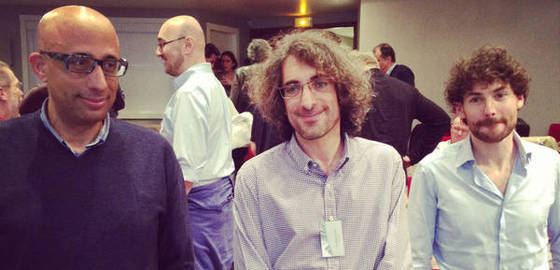D-TEA Conference: Understanding the Rationality in Decision-Making
The question of who makes decisions, and how these decisions are made, has shaped the world’s systems of government, justice, business and social order. Research in decision science has always broken new ground, and HEC Paris organized the 6th edition of its D-TEA (Decision: Theory, Experiments and Applications) conference, to bring together researchers from a range of disciplines, and give an overview of the current situation regarding decision science research.

Hosted by HEC Paris from 2nd-4th June 2014, in partnership with the Axa Research Fund, the conference was organized by HEC Paris Professor Itzhak Gilboa, holder of the AXA – HEC Paris Chair for Decision Science. It took place at the Chambre de Commerce et d’Industrie de Paris, and was attended by 100 participants, including prominent international researchers in decision science. Participants included some of the founders of the field in its modern incarnation, such as Mark Machina (University of California, San Diego), John Quiggin (Australian Research Council), and Chew Soo Hong (National University of Singapore); worldwide authorities on decision theory such as Peter Wakker (Erasmus University); as well as top economic theorists such as Faruk Gul and Wolfgang Pesendorfer (Princeton), Andrew Postlewaite (University of Pennsylvania) and Larry Samuelson (Yale University).
The study of decision-making covers a plethora of intellectual disciplines: mathematics, sociology, psychology, economics, political science, philosophy, and more. Each year at the D-TEA conference, a different aspect of decision science is highlighted, and discussions focus on the interaction between theory, experimental findings, and applications concerning both actual decision making and the construction of models in economics and other social sciences. This year’s D-TEA’s theme, “Individual Rationality, Group Rationality”, focused on the way we can define rational decisions for individuals and for groups.
In a recent interview, Itzhak Gilboa argued that “a good decision is one that is so considered by the decision maker. Rationality is not a medal of honor bestowed on selected decision makers by the decision theorists. Rationality is a matter of subjective coherence, of a person feeling that they have done the best decision they could have” and that today’s challenge in decision analysis is to strike the right balance between mathematical formalization and people’s cognitive and psychological capacities. In light of this notion of rationality it is natural to ask, how does it apply to a group or an organization? Indeed, questions that were addressed at the conference included, but were not limited to: how do we define a notion of “utility” and of “probability” for groups composed of different agents, whose own goals and beliefs might vary? To what extent can we trust a consensus where it might be based on differences in beliefs as well as in goals? Do groups make “better”, or more rational decisions than the individuals who comprise them? To what extent can we think of an organization as a single decision maker?
Over three days, 36 academic papers were presented. They reflected varied and profound topics, such as the price of fairness, the measurement of beliefs, the effects of mood on risk taking, and the meaning of utility. The organizing committee included HEC professors working in decision sciences: Mohammed Abdellaoui, Itzhak Gilboa, Brian Hill, Stefania Minardi, and Philippe Mongin.